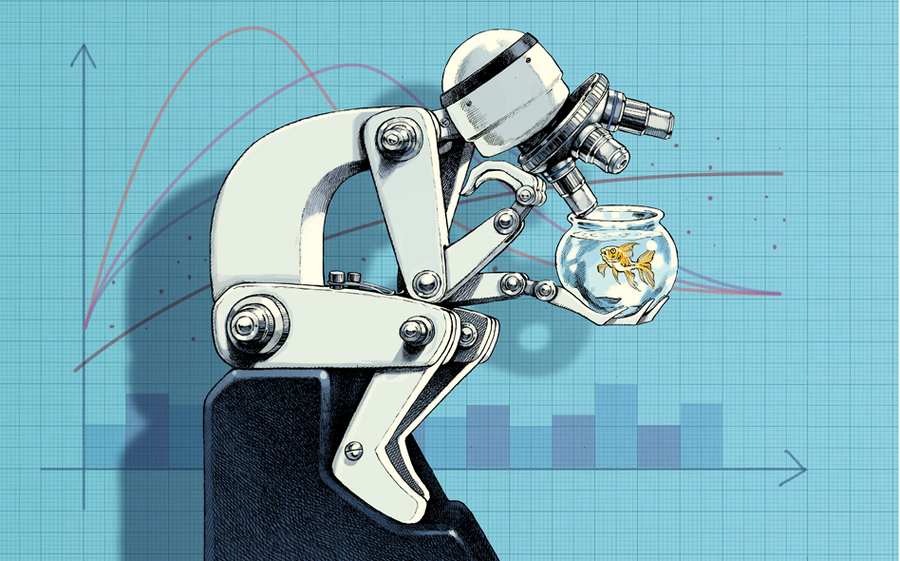
In the future, it will no longer be the scientist in front of a microscope. Illustration: David Parkins
Just observing something with a microscope will not tell us anything about the complexity that the development from one single cell to a multicellular organism means. In a commentary in Nature Biotechnology, Nico Scherf and Jan Huisken argue that it's "time to leave historical constraints behind and create novel instruments that feature more than just good optics, to reveal the invisible world."
The authors call for a paradigm shift in microscopy, because "it will no longer be the scientist in front of a microscope", which means that most traditional design principles will become obsolete. The microscope of the future is gentle, being almost noninvasive - "the health of the biological specimen is no longer the speed-limiting factor; the sample can be imaged as fast as technically possible, for as long as needed." And new microscopes will be smart: They "acquire only what is essential to the particular question and leave the rest untouched. Why do we still take rectangular images of organically shaped biological specimens?"
Nico Scherf & Jan Huisken: The smart and gentle microscope
Nature Biotechnology 33, 815–818 (2015)
doi:10.1038/nbt.3310